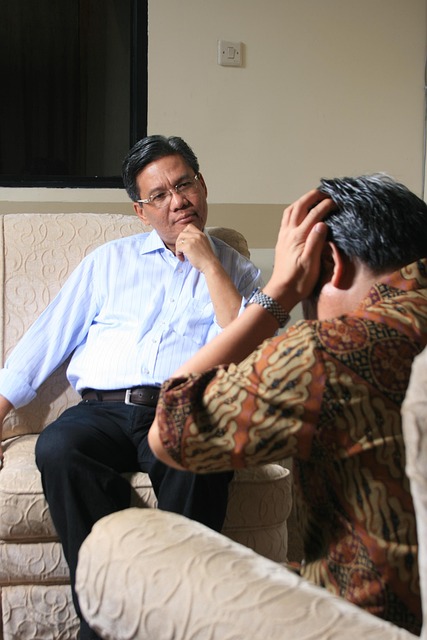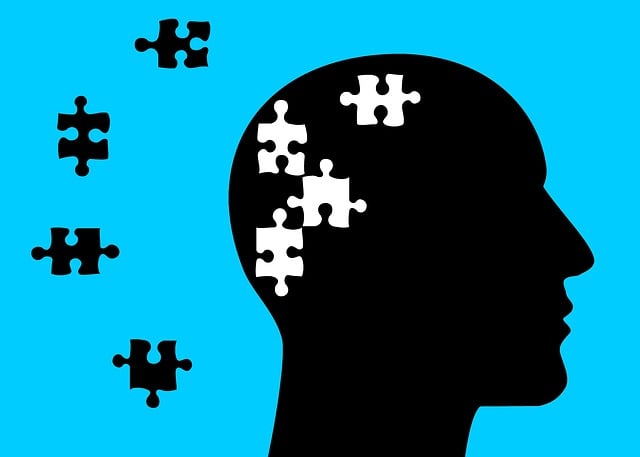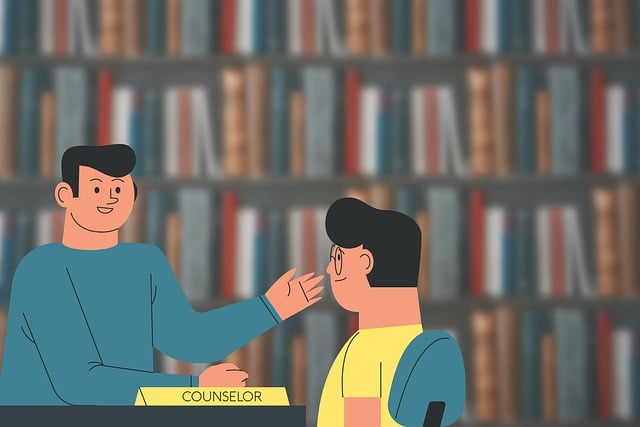Mental health professionals specializing in children and adolescents offer crucial services, creating safe spaces for expression through play, art, or talk therapy. They address emotional challenges, enhance self-esteem, teach coping mechanisms, and build resilience. Accessibility to local counselors is vital for prompt interventions affecting young minds' well-being and development. Diverse experts include psychologists, therapists, social workers, and psychiatrists. Finding qualified counselors in your area through healthcare providers, schools, online directories, or government helplines is essential. In-person therapy sessions benefit children's mental health by fostering trust and open communication. Overcoming barriers like financial constraints and limited awareness of resources is crucial for accessing necessary counseling. Building a strong therapeutic alliance and using simple language for complex techniques enhance the success of mental health counseling interventions. Non-profit initiatives and government bodies provide vital services, supporting young minds' overall well-being.
In today’s fast-paced world, access to quality mental health counseling for children is more important than ever. Understanding the unique needs of young minds and ensuring local access to skilled professionals can be a game-changer for families. This comprehensive guide explores various aspects of child mental health services, including expert types, identification tips, benefits of in-person therapy, and strategies to overcome common barriers. By empowering parents with knowledge, we aim to promote holistic child development through effective counseling.
Understanding Child Mental Health Professionals

Child mental health professionals are experts dedicated to supporting and guiding children and their families through various emotional, behavioral, and psychological challenges. They offer specialized services that cater to the unique needs of young individuals, ensuring they receive the care they deserve. These professionals often include psychologists, psychiatrists, counselors, and therapists who have received extensive training in child development, mental health disorders, and evidence-based therapeutic practices.
Mental health counseling for children involves creating a safe and supportive environment where kids can express their feelings, fears, and experiences. Through play therapy, art therapy, or traditional talk therapy, these experts help children navigate and manage difficult emotions, improve their self-esteem, and develop healthy coping mechanisms. By understanding the child’s perspective and tailoring interventions accordingly, mental health professionals enable children to enhance their emotional resilience and overall well-being.
The Importance of Local Access to Counseling Services

Accessing mental health counseling services nearby is of paramount importance for several reasons, especially when it comes to children and adolescents. Living in close proximity to qualified professionals allows for quicker interventions, which can significantly impact a young person’s overall well-being and development. When a child faces challenges such as anxiety, depression, or trauma, timely support can make all the difference in helping them navigate these difficult emotions and experiences. Local counselors often have a deep understanding of the community and cultural nuances, enabling them to provide more culturally sensitive and tailored care.
Moreover, having local mental health counseling options means that families can avoid potential barriers like long travel distances or waiting lists. This accessibility ensures that children and their caregivers receive consistent and continuous support, fostering a sense of stability and security. It also encourages regular sessions, as it’s often easier to maintain consistency when services are readily available, promoting better outcomes for young clients.
Types of Mental Health Experts for Children

Children and adolescents often require specialized support for their unique mental health needs, and a variety of experts are available to provide just that. Mental health counseling is one such vital service, offering a safe space for young individuals to explore their emotions, thoughts, and behaviors. These counselors are trained to listen attentively, provide guidance, and teach coping strategies tailored to each child’s specific challenges.
The field includes various professionals, such as child psychologists, who assess and diagnose mental health disorders, and pediatric therapists who use play therapy and other techniques to help children express their feelings. Social workers also play a crucial role, offering support to both the child and their family, while psychiatrists can prescribe medication when necessary, alongside psychotherapy. Each expert brings a unique skill set to ensure comprehensive care for young minds.
Identifying Qualified Child Counselors in Your Area

Finding qualified child counselors in your area is a crucial step in ensuring access to effective mental health support for young minds. Start by reaching out to local healthcare providers, schools, and community centers as they often have resources or partnerships with mental health professionals specializing in childhood issues. Many areas also have online directories or government-funded helplines dedicated to connecting families with suitable counselors. These resources can filter searches based on location, specialization (like child psychology or behavioral therapy), and insurance acceptance, making it easier to identify professionals who meet your specific needs.
Additionally, word-of-mouth recommendations from friends, family, or other parents can be valuable. Online reviews and ratings of mental health counseling services are also becoming increasingly common and can offer insights into the quality of care provided. When evaluating counselors, consider their qualifications, experience working with children, therapeutic approaches, and the overall fit for your child’s unique needs and your family’s comfort level.
Benefits of In-Person Therapy Sessions for Kids

In-person therapy sessions offer a multitude of benefits for children seeking mental health counseling. Firstly, face-to-face interactions allow for a more nuanced understanding of a child’s emotional state and behaviors. Therapists can observe body language, facial expressions, and non-verbal cues, which are essential for accurate assessment and tailoring treatment plans to each unique individual. This direct approach facilitates a deeper connection between the therapist and client, fostering trust and openness, which are fundamental for effective therapy.
Additionally, in-person sessions provide an engaging and structured environment where children can actively participate in activities, play, or discussion, making therapy more accessible and less intimidating. Such interactions also enable immediate feedback and real-time problem-solving, allowing therapists to address concerns promptly. This direct communication can enhance the therapeutic experience, encouraging kids to express their thoughts and feelings more freely, ultimately contributing to improved mental well-being.
Overcoming Barriers to Finding Nearby Mental Health Support

Finding nearby mental health support can often feel like navigating a complex labyrinth, especially for parents seeking services for their children. Many barriers stand in the way of families accessing quality mental health counseling, making it crucial to understand these challenges. One significant hurdle is the lack of awareness about available resources. Many communities have a limited number of child-focused mental health professionals, and this scarcity can make it difficult for parents to know where to turn.
Another common obstacle is the financial burden associated with therapy. Out-of-pocket costs for mental health services can be substantial, deterring families from seeking professional help. Insurance coverage varies, and out-of-network providers often result in higher expenses. However, there are ways to overcome these barriers; community outreach programs and government initiatives offer subsidized counseling options, making essential mental health support more accessible to all families.
Building a Strong Therapeutic Alliance with Your Child's Counselor

Building a strong therapeutic alliance is crucial for effective mental health counseling, especially when working with children. This relationship forms the foundation upon which your child feels safe, trusted, and supported throughout their journey towards healing and growth. The counselor plays a vital role in creating an environment that encourages open communication, actively listening to your child’s thoughts and feelings without judgment.
By fostering this alliance, parents can be assured that their child’s counselor understands their unique needs and is adept at tailoring counseling sessions to promote positive change. This partnership enables consistent progress, as the child feels empowered to express themselves honestly, knowing they are heard and respected, ultimately enhancing the overall success of mental health counseling interventions.
Effective Communication Strategies for Parents and Counselors

Effective communication is pivotal in fostering a supportive environment for both parents and child mental health counselors. Counselors should employ active listening, where they give undivided attention to parents’ concerns and experiences, encouraging them to express their thoughts openly. This strategy not only ensures that every detail is considered but also builds trust and rapport between the counselor and family.
Additionally, clear and concise explanations of counseling techniques and goals are essential. Counselors can use simple language to describe complex strategies, empowering parents to understand and actively participate in their child’s therapy journey. Regular feedback sessions allow counselors to adapt their approaches based on parental insights, ensuring that mental health counseling aligns with the family’s unique needs and preferences.
Resources and Organizations Supporting Child Mental Wellness

Accessing resources and organizations dedicated to child mental wellness is a crucial step in ensuring young minds receive the necessary support. Numerous non-profit initiatives and government bodies offer vital services, including mental health counseling for children and adolescents. These organizations provide a safe space for kids to express their emotions, cope with challenges, and develop essential resilience skills.
Local communities often have dedicated centers or clinics where trained professionals offer specialized therapy sessions tailored to the unique needs of children. From play therapy to cognitive-behavioral approaches, these counselors help young individuals navigate anxiety, depression, trauma, or behavioral issues. By leveraging these resources, parents and guardians can actively contribute to their child’s mental health and well-being.
